Getting ready to embark on some DIY electrical work? Think safety first and dodge these common mishaps pro electricians know to avoid.
7 Things Professional Electricians Never Do in Their Own Homes
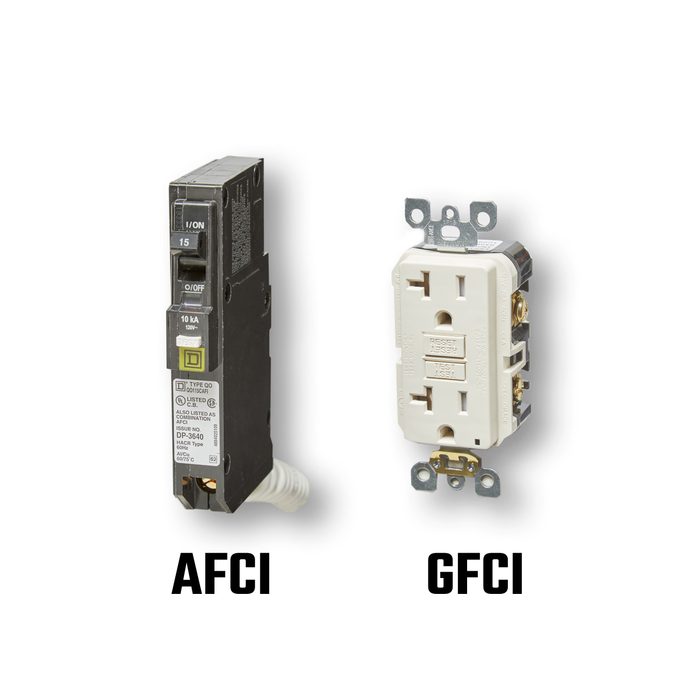
Confuse AFCI and GFCI
Understanding the difference between arc-fault circuit-interrupter protection and ground-fault circuit-interrupter protection is the hallmark of a successful (read: safe and accurate) electrical job. Pro electricians know mixing them up is a recipe for disaster.
In short, GFCI protection belongs outdoors, in areas of the home where appliances are used. or where there could be moisture (garages, crawlspaces, bathrooms, et al). GFCIs monitors the electrical flow between outlets and anything that might be plugged in to said outlet. If something goes awry, the GFCI immediately halts the power — protecting you from electrical shock.
As for AFCI protection, it is used in general living spaces (living room, dining area, bedrooms, etc.). Its purpose? Fire protection. AFCIs look for arcs or potential arcs, not only in the circuits but also in any conductors associated with the circuits. If one is detected, the AFCI shuts off the circuit so things don’t go up in flames.
McKusker and Duncan agree that before you start working with electrical outlets, it is absolutely essential that you understand the difference between GFCI and AFCI. If there is any doubt at all, call a pro.
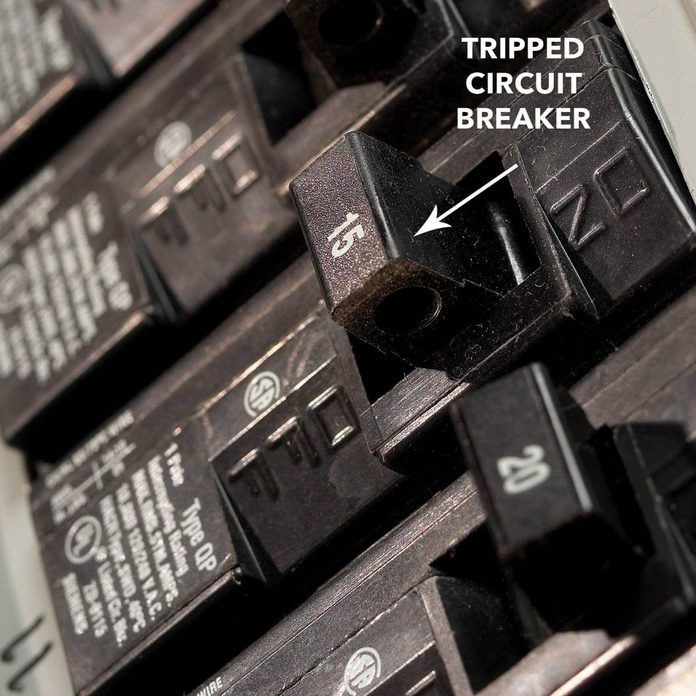
Tape a Circuit Breaker Into the “On” Position
We get it — it’s annoying when a circuit breaker trips every time you use your hair dryer or microwave, forcing you to trudge down to the basement or out to the garage to reset it in the cold early-morning hours.
But circuit breakers trip to make you aware of problems, like overloaded and/or short circuits (among other complicated problems). Tripping is simply a sign that the circuit breaker is doing its job, says McKusker. If you try to outsmart it with duct tape, you might keep the circuit from tripping, but you’ll risk more serious problems — namely, fire or electrocution (scary!).
Instead, find out what is causing the trip and fix the problem. The best way to do this? Check with an electrician. The solution might be as straightforward as replacing finicky appliances. Or you might be advised to add additional circuits or to have circuitry repaired. In any case, skip the tape and get some professional advice!
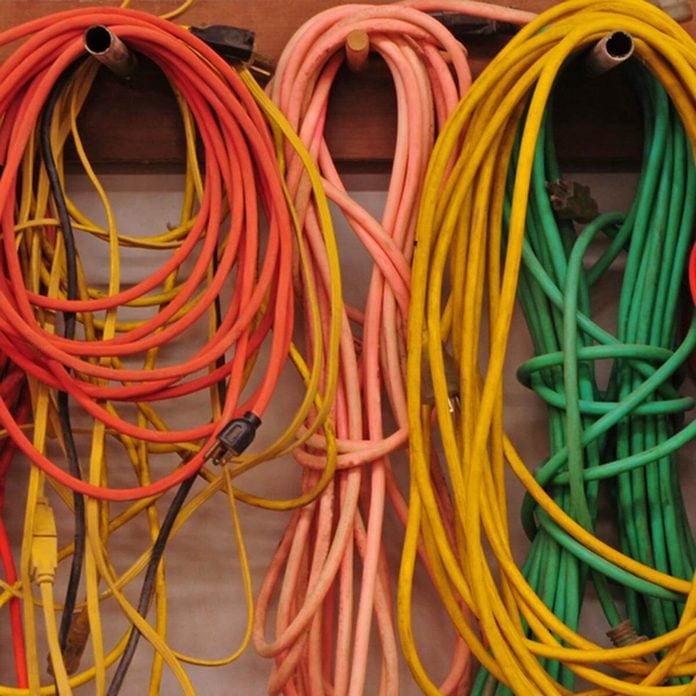
Use an Extension Cord as a Permanent Source of Power
Extension cords are great for temporarily bringing power from point A to point B. But a professional electrician would never use an extension cord as a quick and easy alternative to permanent wiring — for example, to power a sump pump or freezer — and neither should you. Why? Again, safety.
According to the Electrical Safety Foundation International, extension cords deteriorate over time, leading to electrical shock or fire. The solution is straightforward. If you need to power a permanent fixture, install permanent wiring. Leave the extension cords to do the jobs they were designed to do, says McKusker.
“There is nothing wrong with using an extension cord for a temporary means of powering up a device or a drill,” he says. “But when you are using an extension cord as a permanent means of trying to get power somewhere, that is where you run into issues.”
Appropriate items to use with extension cords include tools, holiday lights.
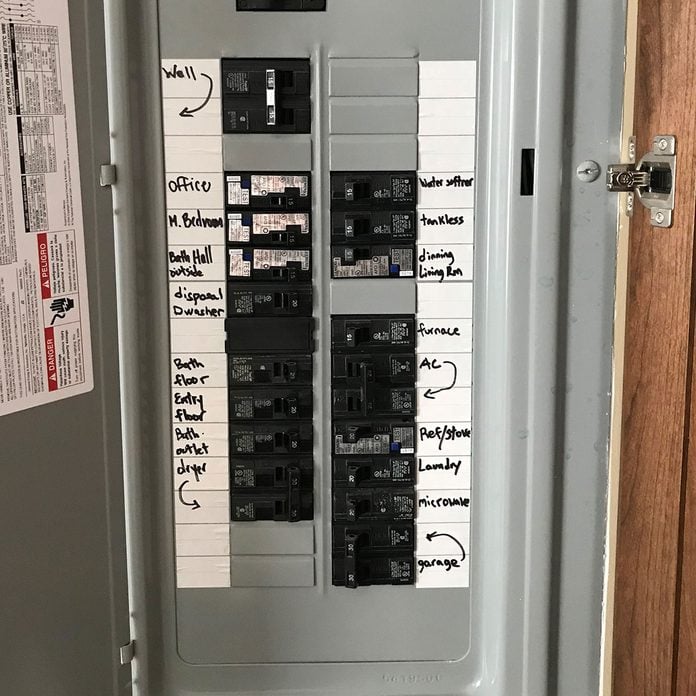
Leave the Power On While Working With Wires
Whether it’s an oversight or a lack of knowledge on the topic, it can happen — and if it does, there could be real trouble. As in, you could get electrocuted. That’s why professional electricians never leave the power on when they are working with electrical systems in a home.
“The power should be completely off before you disconnect or connect any wires,” says Duncan.
Does this mean you have to power down the entire house? No, says Duncan. But you do need to find and turn off the breaker that matches the circuits you are working on.
Hopefully, your circuit breaker is labeled so you know exactly which ones to turn off. If not, you can (carefully) figure it out by flipping circuit breakers on and off to see where the power goes. You can also hire a professional electrician to do this if you don’t feel comfortable with the task.
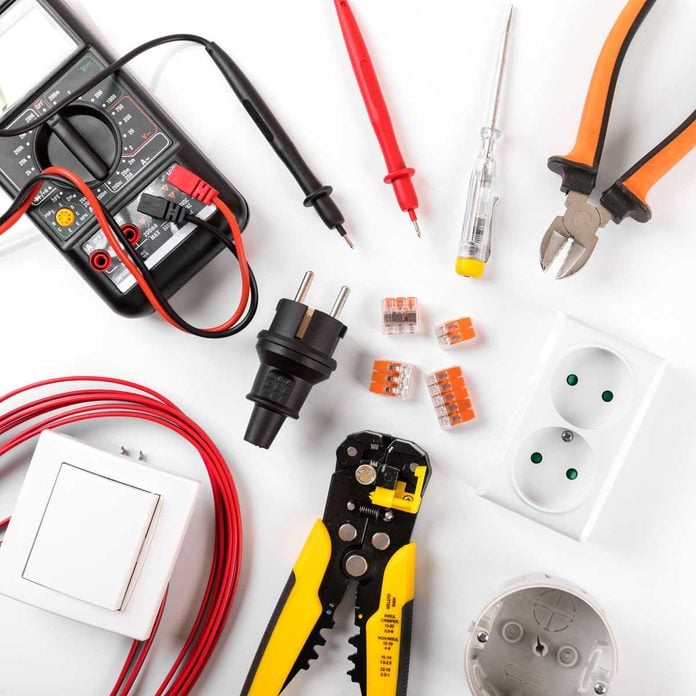
Use the Wrong Tools for the Job
Don’t have the right tools for your electrical project du jour? Then go get the right tools or don’t proceed. Period. Professional electricians would never use tools that aren’t designed for electrical work to conduct electrical work, says Duncan.
“There is always the proper tool for the proper job,” he says, adding that “pliers are not hammers.”
Duncan recommends planning your project and making a list of the tools you need before starting. Likewise, McKusker suggests purchasing the best tools you can afford, because the quality of the tool impacts the outcome of the project.
“The right set of tools for the job makes your life 10 times easier,” McKusker says.
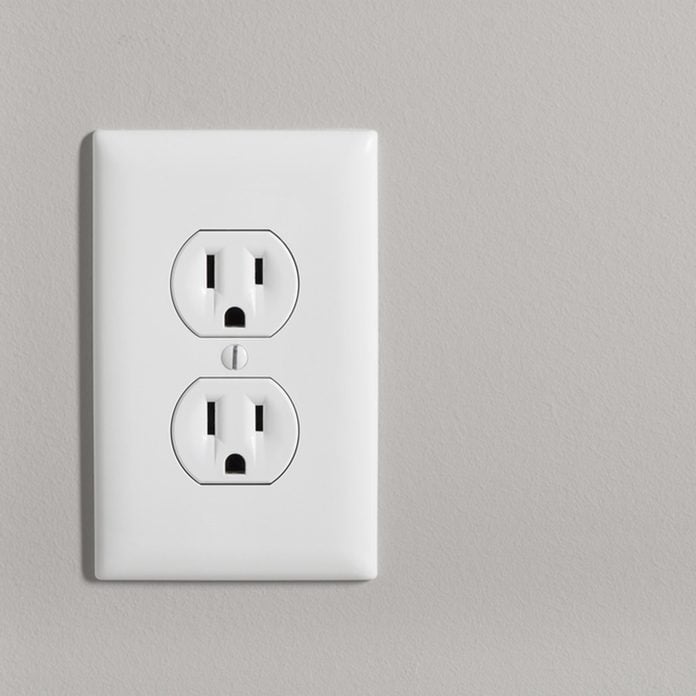
Fail to Replace Broken or Outdated Outlets and Switches
If you have a loose electrical outlet, it might be tempting to try to jury-rig it to make a plug stay put. Don’t do this, says McKusker. Instead, replace it. When an outlet is loose, it disrupts the electrical current which can cause (you guessed it) a fire. Same goes for light switches. Even if it still works, if it pops or exudes a burning smell, it needs to go.
“Everything has a life expectancy,” says McKusker. “A light switch is only designed to be turned on and off so many times.”

Fail to Follow Code
Professional electricians know that there is a National Electrical Code for a reason. They would never take code-related shortcuts to save time, money or trouble.
The No. 1 reason code must be followed? Safety, says Duncan. However, there is another equally important reason.
“A lot of people don’t realize that another reason for code is uniformity,” Duncan says.
In other words, code allows electricians to always have an understanding of what was done previously.
“There is a standardization in the industry so you can quickly recognize when something is done wrong,” he says.
If you’re not sure what the code is for your electrical project, no worries — a professional electrician can likely steer you in the right direction. For anyone who has a longer list of DIY electrical tasks on the docket, though, consider investing in a code handbook so you can look something up whenever you need the info. You can also download a free version if you prefer; this option gives you instant access to the annual code updates.

